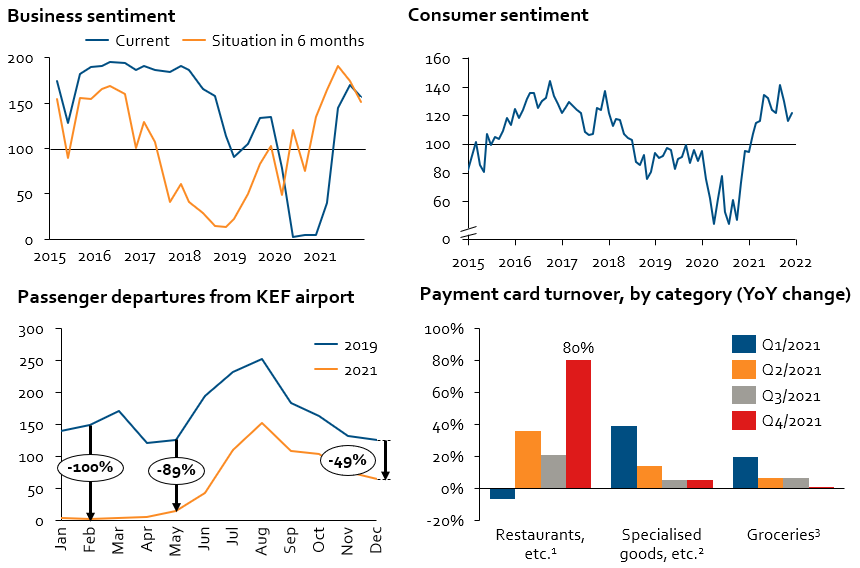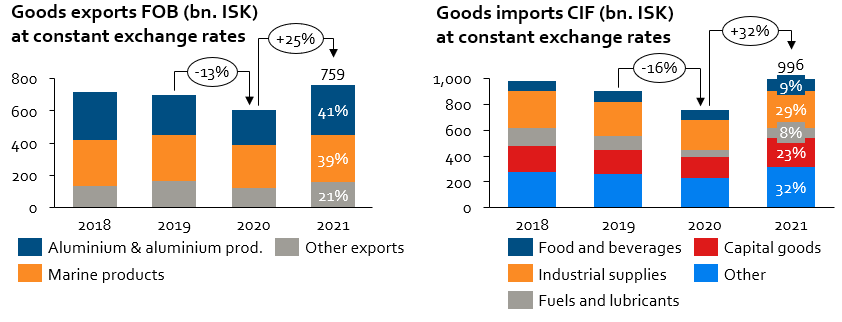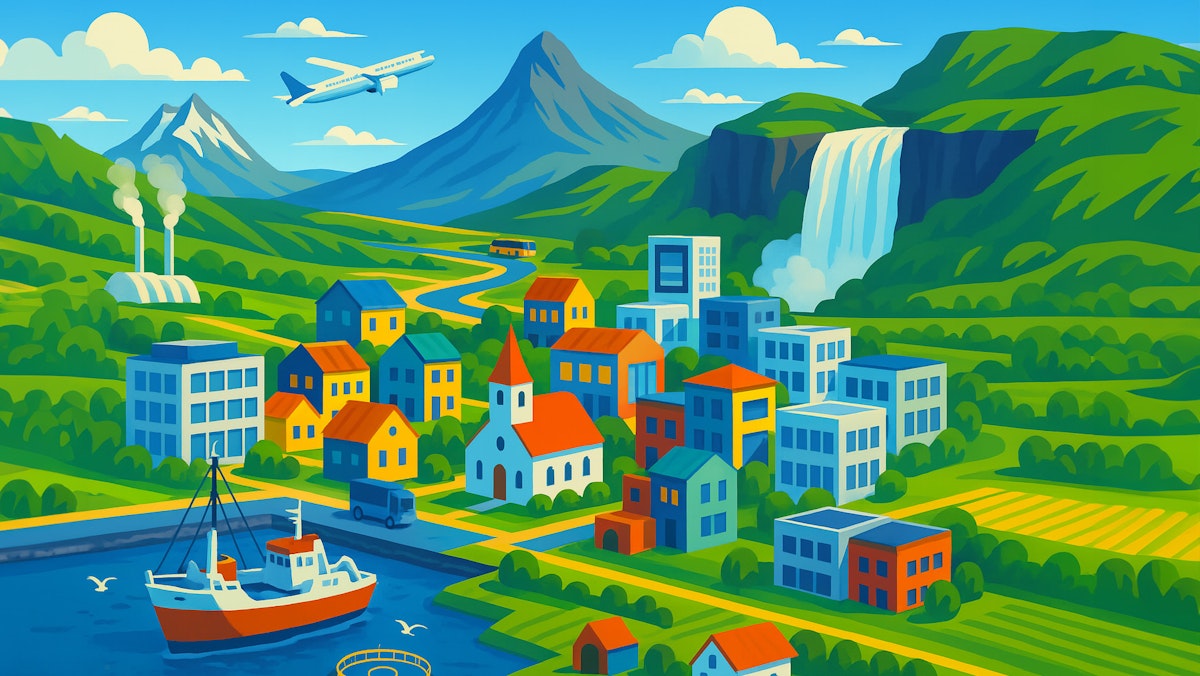The Icelandic Economy - Q1 2022
The Iceland Chamber of Commerce has published a new quarterly edition of The Icelandic Economy, which gives a unique and comprehensive overview of the economy.
The report summarizes various developments that have occurred since the chamber's last publication in mid-October. It discusses the economic development in recent months, competitiveness, the structure and institutional framework of the economy, and the goals of the newly elected government.
It can be assumed that the recovery of the economy has been strong with a declining unemployment rate, higher employment participation rate, vibrant asset markets, and increased private consumption and foreign trade. Short-term economic indicators also point towards an improved outlook with an increasing number of tourists and strong economic growth.

Highlights
Economic Developments
The outlook for the Icelandic economy has improved in recent months. Projected growth is 5.1% of GDP this year and short-term indicators are promising. Inflation, however, rose from 5.1% to 5.7% in January 2022 showing a similar trend to figures seen in US and UK recently. The Central Bank’s key interest rate is currently 2% and forecasters are assuming 0.5 – 1 percentage point increase on 9 February 2022. Hopes are for inflation to align with the target later this year and according to the Central Bank’s forecast in November, inflation is expected to measure 3.5% in 2022 and 2.9% in 2023.
Other developments of note include housing and stock markets rising 18% and 33% respectively in 2021, a relatively stable exchange rate and improved central government deficit which is now projected to measure 8.9% of GDP in 2021, compared to previous forecast of 10.7% of GDP deficit.
Iceland at a Glance
Iceland ranks highly on several international indicators. According to the IMD’s Competitiveness Index, Icelandranks 21stout of 64 countries in competitiveness. Infrastructure and several indicators regarding businessefficiency are particular strengths, while the country’s small size and financial environment lag behind. Icelandranks first in gender equality and on the Global Peace Index it has held its place as the most peaceful country inthe world since 2008.
Institutional Framework
Iceland is a parliamentary republic with a large public sector. The Central Bank targets inflation and the financial system is characterised by prominent pension funds and banks.
The renewed coalition agreement of the newly elected government inter alia emphasizes combatting climate changes, increased support for innovation and improved business environment.

The Icelandic economy has undergone drastic changes in recent years and for a small open economy it is important to frequently convey useful information to stakeholders. Therefore, the report is sent to thousands of recipients in business, governmental administration, and other organisations around the world, in addition to being freely available online.
The Chamber offers a presentation based on the report. For further information, please contact our Economist, Elísa Arna Hilmarsdóttir (elisa@vi.is).




